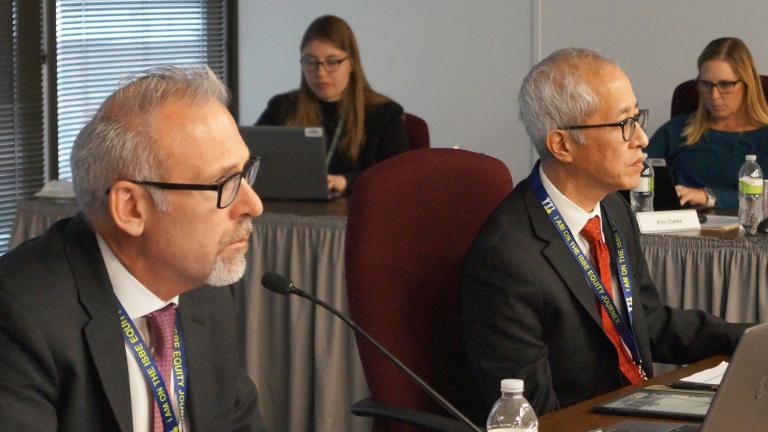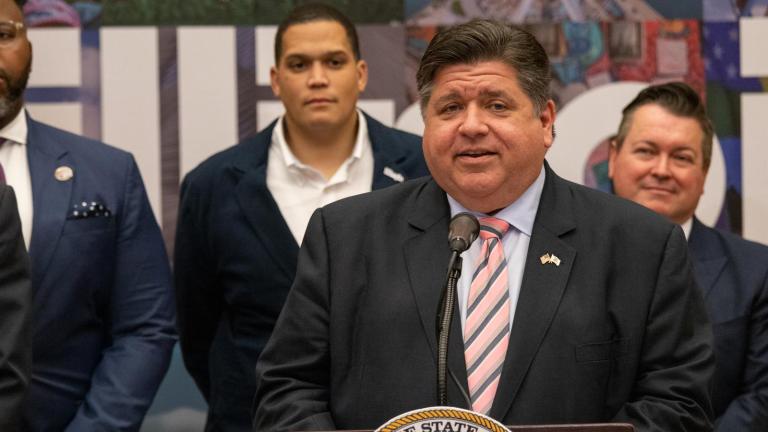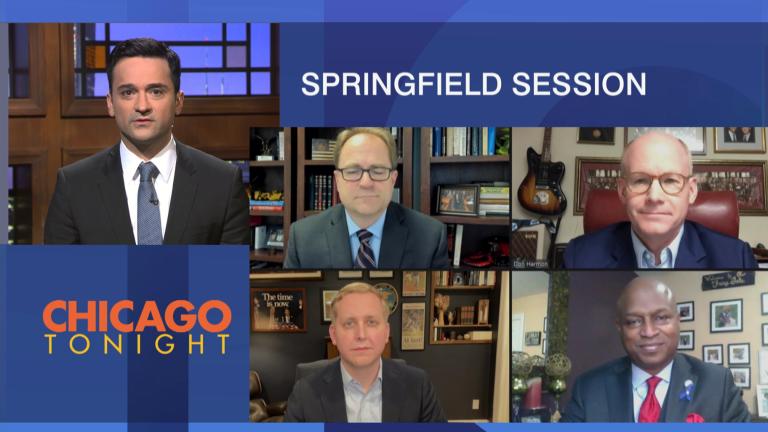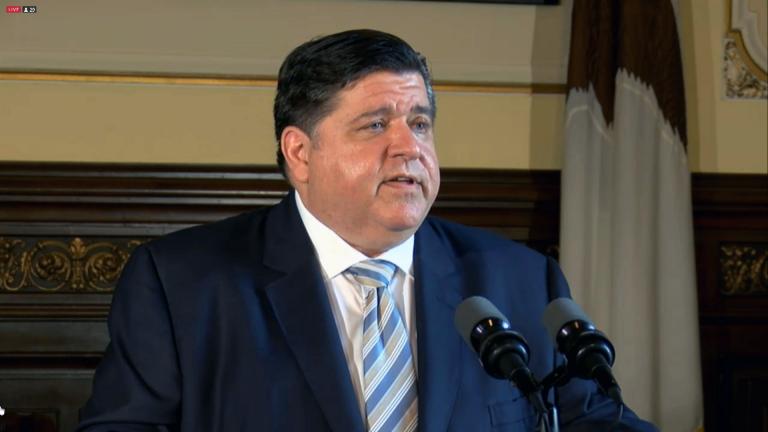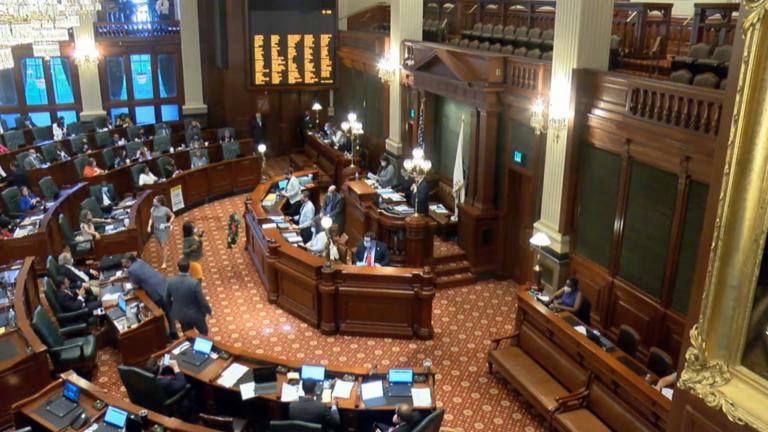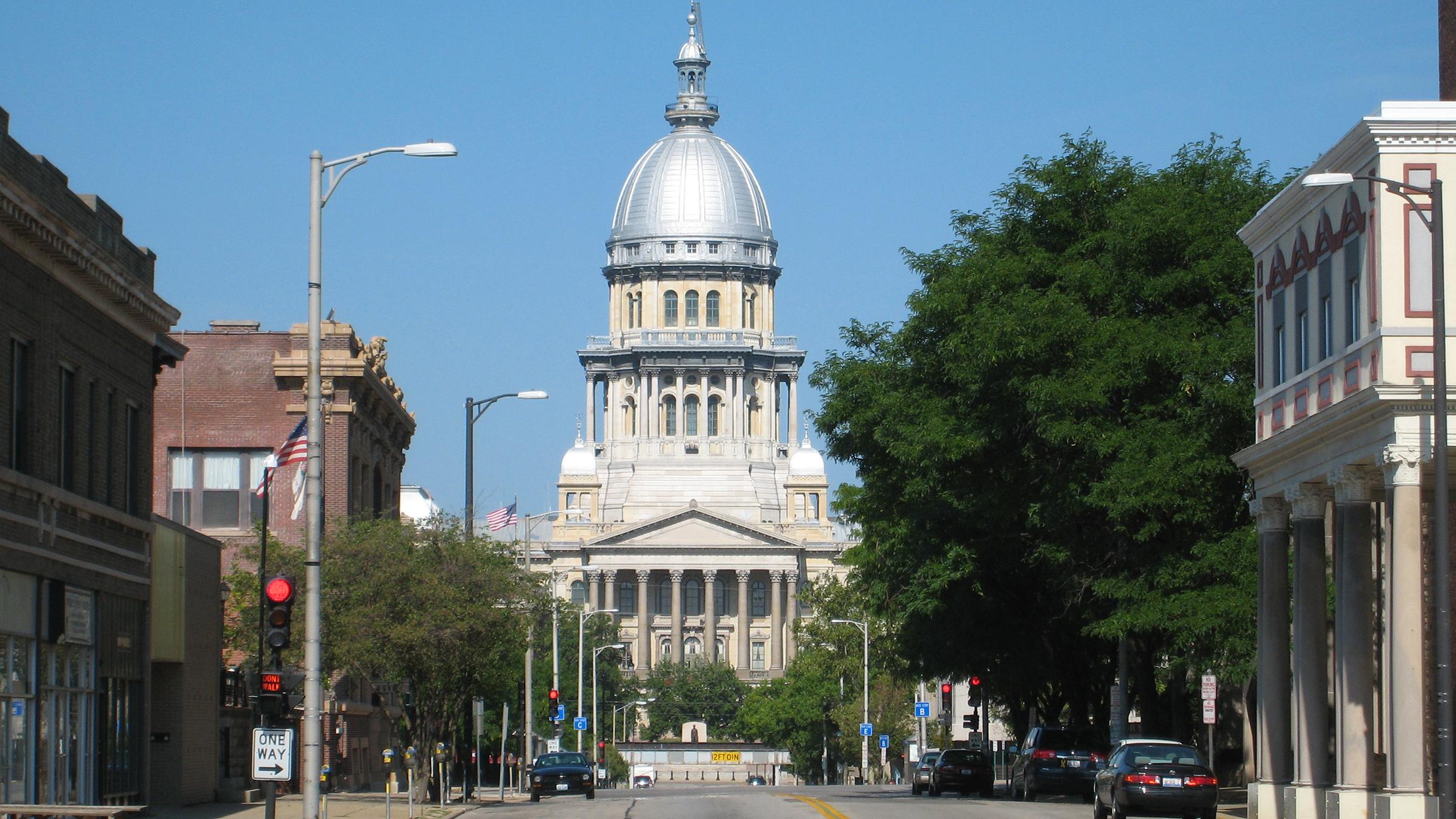 (Éovart Caçeir at English Wikipedia)
(Éovart Caçeir at English Wikipedia)
As Illinois faces an end-of-month deadline to pass a budget, Illinois House Speaker Michael Madigan has introduced a new set of preconditions to a compromise.
Madigan announced his terms following a private meeting with the legislature’s other top leaders – their first this year. Republican Gov. Bruce Rauner did not take part.
The meeting took place as Rauner’s 10-day special session hit the halfway mark.
Madigan, who also chairs the Democratic Party of Illinois, wants Rauner to swallow, support and sign into law three measures: One to update the formula used to calculate how much state funding elementary and secondary schools receive; the second would have the state regulate the rates set by workers’ compensation insurance companies; and the third would require the Rauner administration follow the state procurement code as it seeks to reconfigure the managed care system for Medicaid, state-backed health care program for the poor, by awarding a new set of lucrative contracts to insurers.
“This is a governmental negotiation. This is a situation where nobody gets 100 percent. I asked the Republican leaders to please go down to the governor and explain: In a governmental negotiation, nobody gets 100 percent,” Madigan said.
In exchange, Madigan says Democrats will give consideration to Rauner’s demands, including a property tax freeze; Madigan said House Democrats are working on a bill that would hold the line on local real estate taxes, though he did not say how many years a freeze would last under that plan.
“Only because the governor wants to impose that on people who depend upon public schools to education children, OK? It’s part of the extreme right agenda,” Madigan said of Rauner insistence on a property tax freeze.
Local property taxes are the primary funding source for schools.
“That is the furthest from the truth. And that’s really disappointing at this stage, after two and a half years that it has now become part of some right wing conspiracy. That doesn’t help,” House GOP Leader Jim Durkin said of Madigan’s comment. “Our property taxes are the worst … in the United States. Not a good statement to make.”
Rauner has insisted on the legislature passing a series of “reforms” he says will repair state government and strengthen Illinois’ economy before he, and Republican lawmakers, agree to higher taxes. Madigan has long called for Rauner to drop his “off-budget” items and to instead prioritize a spending plan. The partisan standoff has resulted in unprecedented gridlock that has left the state without a budget for nearly three years.
“I think we had a very good and productive meeting. We exchanged ideas. I reiterated to the other leaders my firm belief that Gov. Rauner has unjustifiably held hostage the budget making in order to achieve his extreme right agenda,” Madigan said after Sunday’s meeting. “What he’s really done is to hold hostage people who in Illinois depend upon state funding for autism services, people who depend upon the state for breast cancer screenings, child abuse prevention and sexual assault victims. That’s what he’s done.”
Durkin didn’t outright dismiss Madigan’s requests, and said “there could be a reconciliation.”
“The fact that they’re willing to negotiate, to me, is a little more movement than we’ve seen in the past,” Durkin said, before adding: “We’re flexible. We’ve always have been flexible. Remember, there’s been a lot of complaints about the governor moving the goal post. We just saw that today from the Democrats.”
The education funding formula plan, Senate Bill 1, has already passed the General Assembly, but Rauner has said he won’t sign it into law because it’s a “bailout” for Chicago Public Schools. Republicans are pushing a different version.
Madigan’s other asks could likewise prove difficult for Republicans to agree to.
Take workers compensation.
Republicans, who have allegiances with businesses including insurance companies, have long clamored for bringing down businesses’ costs for treating injured workers. But Democrats, who are aligned with trial lawyers, say that 2011 reforms are already doing that – it’s just that insurers are banking the savings.
Nonetheless, leaders from both sides of the aisle say the weekend meeting was a positive step.
“I was critical and still am critical of the special session, because nothing gets done from the special session. What gets done is when you have meetings like this. And that’s why it was a good meeting, Senate President John Cullerton said.
Under Cullerton’s leadership, the Senate, with only Democratic votes, has already passed a budget—one buttressed by a series of tax hikes, including raising the income tax rate from 3.75 percent to just under 5 percent.
Republicans from both chambers jointly introduced a spending plan, but though it’s predicated on higher taxes no Republican has introduced legislation to do so. The GOP version jumps off of Democrats’ plan but among the differences is a major one: Republicans want a four-year, temporary income tax increase tied to a four-year property tax freeze, rather than a permanent rate hike.
It is unclear when the legislative leaders will meet again. Madigan said a meeting is planned for Tuesday, but Durkin says any meeting without a House Democratic budget plan to discuss would be “an exercise in futility.”
Follow Amanda Vinicky on Twitter: @AmandaVinicky
Related stories:
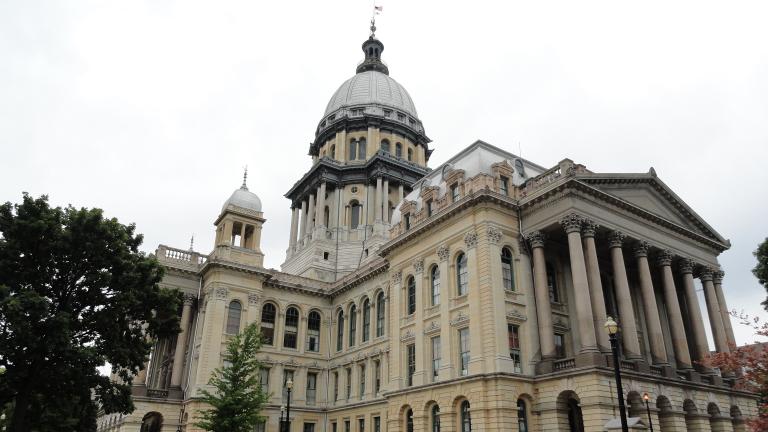 Illinois in ‘Dire Straits’ and Leaders, Governor Can’t Even Agree to Meet
Illinois in ‘Dire Straits’ and Leaders, Governor Can’t Even Agree to Meet
June 23: An updated “doomsday” picture offered by Comptroller Susana Mendoza: Without a budget in place soon, she won’t be able to write checks to pay for the most basic of services come August.
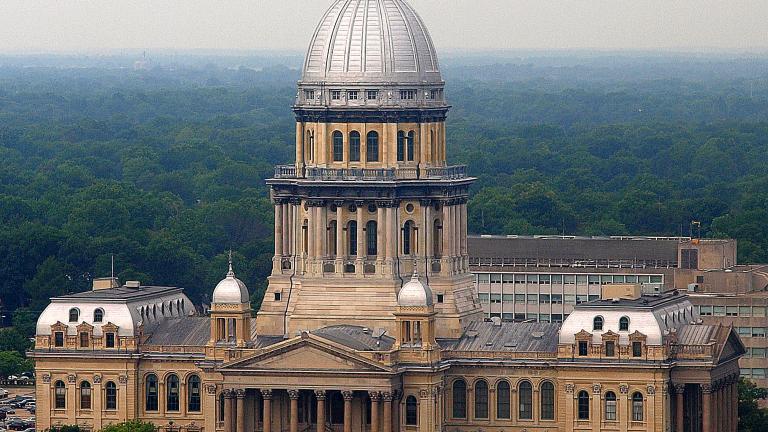 As End of Fiscal Year Nears, Little Progress in Springfield
As End of Fiscal Year Nears, Little Progress in Springfield
June 22: The end of the fiscal year is a week from Friday. Is Illinois any closer to getting a budget passed by that deadline?
 In Springfield, Special Session Off to a Slow Start
In Springfield, Special Session Off to a Slow Start
June 21: The 10-day special session called by Gov. Bruce Rauner got off to a slow start Wednesday, with legislators spending none of their short time on the House and Senate floors debating material fiscal matters.

